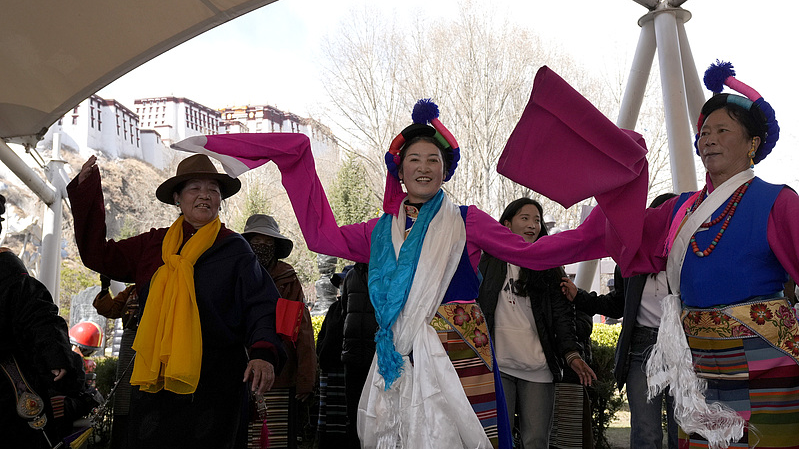A new white paper issued by China's State Council Information Office sheds light on how religious freedom is actively protected in southwest China's Xizang Autonomous Region. The report highlights government efforts to support diverse faiths and preserve centuries-old traditions.
According to the document, Xizang is home to approximately 46,000 Buddhist monks and nuns, 12,000 native Muslims, and over 700 Catholic believers. Ordinary residents often have scripture rooms or Buddhist shrines at home, reflecting faith woven into daily life.
In Tibetan Buddhist monasteries, traditional activities such as scripture study, debate sessions, monk and nun initiations, abhisheka (empowerment ceremonies), and self-cultivation practices are held regularly. Monastic examinations and academic promotions keep centuries-old educational systems alive.
Cultural and folk celebrations—including the Shoton Festival, Butter Lamp Festival, Saga Dawa Festival, and ritual walks around sacred lakes and mountains—continue as customary expressions of faith and community.
The white paper notes that the central government and local authorities fully respect the tradition of reincarnation of living Buddhas in Tibetan Buddhism. All processes follow the Measures on the Management of the Reincarnation of Living Buddhas of Tibetan Buddhism and are managed according to law.
Infrastructure upgrades have reached over 98 percent of monasteries and temples, bringing roads, telecommunications, electricity, water, and broadcast services to religious sites. The government allocates more than 26 million yuan annually for medical insurance, pensions, accident coverage, and health checks for all registered monks and nuns.
Education in Tibetan Buddhism receives strong support, with nine colleges established—including the High-Level Tibetan Buddhism College of China and the Xizang Tibetan Buddhist Institute—backed by a total investment of 920 million yuan.
The white paper also highlights broader human rights progress, noting political stability, ethnic unity, economic development, social harmony, and mutual respect among different religions in Xizang.
As Xizang marks its 60th founding anniversary in 2025, regional chairman Gama Cedain credits the Party leadership with laying the foundation for lasting stability and high-quality development. Residents of all ethnic groups have achieved historic gains in their rights to subsistence and development.
Reference(s):
White paper: Religious freedom effectively safeguarded in Xizang
cgtn.com




